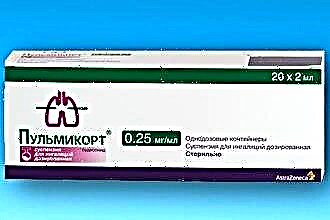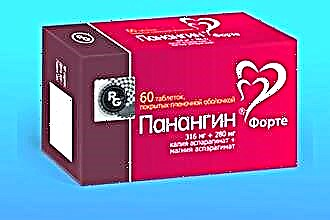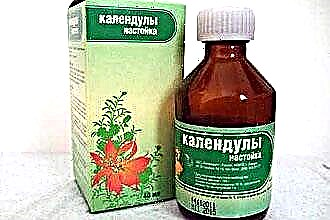Causes
 To understand how to get rid of pharyngitis, you should find out the causes of the disease. There are many factors that can cause pharyngitis.
To understand how to get rid of pharyngitis, you should find out the causes of the disease. There are many factors that can cause pharyngitis.
First of all, people with reduced immunity, as well as individuals with untreated diseases of the nasopharynx, fall into the risk zone. Most often, pharyngitis occurs as a result of exposure to the body of pathogenic viruses or bacteria (adenovirus, rhinovirus, streptococcus, staphylococcus). The likelihood of the onset of the disease increases many times in the presence of such factors as:
- strong cooling or overheating of the throat and the body as a whole (eating hot or very cold food, drinks, prolonged stay in a room with a low temperature, prolonged inhalation of dry, polluted air);
- excessive overstrain of the vocal apparatus, provoking dry mouth;
- the presence of diseases of the oral cavity, gums and teeth;
- the presence of concomitant diseases of the organs of the nasopharynx;
- congenital defects of the respiratory system (curvature of the nasal septum);
- disturbances in the work of the digestive system, as a result of which gastric juice and other enzymes may be thrown into the pharynx (reflux);
- violations of the general hormonal background;
- allergic reactions of the body to the effects of various irritants (dust, strong odors, animal hair, food);
- alcohol abuse, smoking;
- unfavorable climatic and ecological conditions.
These factors most often provoke the development of the acute stage of pharyngitis.
Important! If timely and effective treatment of pharyngitis has not been carried out, the disease can go from acute to chronic form, which significantly complicates the treatment of pharyngitis in adults and requires longer therapy.
Symptoms
Treatment for pharyngitis will depend on the type of pathogen causing the disease, as well as on the presence of characteristic signs. With pharyngitis, the patient may have the following symptoms:
- sore throat (especially in the morning after sleep or after a long silence), perspiration;
- severe redness of the surface of the tonsils, often there is a white coating;
- the presence of an annoying dry cough without the formation of phlegm;
- a feeling of the presence of a foreign object in the throat;
- increased body temperature;
- fast fatiguability;
- swelling of the mucous membranes of the throat is possible, which is a threat of difficulty breathing;
- enlargement of the cervical lymph nodes;
- light coating on the tongue;
- rhinitis; nausea, vomiting.
Important! Pharyngitis symptoms can vary significantly depending on the form of the disease. In the acute stage of the disease, the symptoms are more pronounced, while the chronic form is characterized by minimal clinical manifestations.
Based on the presence of certain symptoms of the disease, we can talk about four main types of pharyngitis.
- With the catarrhal form of the disease, the vessels of the pharyngeal mucosa overflow with blood (hyperemia).
- The hypertrophic form of the disease is distinguished by greatly enlarged lymph nodes.
- Thinning of the pharyngeal mucosa occurs as a result of a prolonged inflammatory process accompanying the atrophic form of the disease.
- If pharyngitis has developed as a result of inhalation of allergens of various nature, in this case, the disease will be accompanied by an annoying cough, hyperemia of the back of the pharynx, swelling and sore throat.
Only after analyzing the symptoms accompanying the disease and carrying out diagnostic procedures can you understand how to treat pharyngitis in adults correctly. Most often, the attending physician, after a preliminary examination, prescribes the delivery of general blood and urine tests to determine the severity of the inflammatory process, as well as a throat swab for bacterial inoculation in order to identify the type of pathogenic microorganism that caused pharyngitis.
Treatment
In order to understand how to quickly cure pharyngitis and what treatment in adults should be based on, it is necessary to find out the nature of the disease. If there is a bacterial infection, then in this case, drug treatment of pharyngitis with antibiotics (Sumamed, Azithromycin, Augmentin, Zinnat) must be carried out. Also, quite often, if bacterial pharyngitis occurs, treatment can be based on the use of local antibacterial agents (Fugofungin, Bioparox).
Important! If antibiotic treatment is carried out, then for the prevention of dysbiosis during treatment and within a week after it, probiotics (Linex, Bifiform) must be used.
In the case when pharyngitis is caused by exposure to a viral infection, antiviral drugs (Arbidol, Groprinosin, Ingavirin) are used.
Despite the fact that the treatment of pharyngitis in the first place should be aimed at eliminating the causes of the disease, it is also necessary to know how to cure the accompanying symptoms.
- In order to reduce the severity of discomfort and eliminate dry throat, special antibacterial and analgesic sprays, tablets, lozenges and lozenges are used (Faringosept, Gesoral, Ingalipt, Yoks, Lizobakt, Strepsils).
- It is possible to reduce the severity of inflammation in the throat with rinsing. In this case, it is recommended to use antibacterial solutions such as Furacilin, Chlorhexidine, Chlorophyllipt, Miramistin.
- If pharyngitis is accompanied by a productive cough with sputum discharge, then you can use special tablets and cough syrups that have a mucolytic and expectorant effect (Gerbion, Ambroxol, ACC, Erespal).
- With the allergic nature of pharyngitis, first of all, it is necessary to eliminate the cause that caused the allergic reaction, as well as to use antihistamines (Suprastin, Loratadin, Diazolin, Zodak), which help eliminate puffiness, rhinitis, cough and redness of the throat. At elevated body temperature and severe sore throat, it is recommended to use anti-inflammatory drugs with antipyretic effect (Analgin, Ibuprofen, Nurofen, Paracetamol).
- In the complex treatment of chronic pharyngitis, drugs are often prescribed that have a strengthening effect on the immune system, these can be both immunomodulators (Arbidol, Viferon, Derinat), and vitamin-mineral complexes, including B vitamins and vitamin C (Duovit, Vtrum, Alphabet) ...
Traditional methods of treatment
We figured out what pharyngitis is and how to treat it. However, in the complex therapy of various types of pharyngitis, it is advisable to use not only drug treatment, but also to apply alternative methods. Herbal recipes are an effective adjunct in the treatment of nasopharyngeal diseases.
- In the treatment of pharyngitis, decoctions of medicinal plants are used to gargle. During the procedure, fees are used, including elderberry flowers, oak bark, chamomile, immortelle, calendula, sage.15 grams of a mixture of dry herbs are poured into 200 ml of boiling water, infused for half an hour, filtered and used for rinsing. The procedure is carried out three times a day with a freshly prepared broth, cooled to room temperature.
- To reduce pain and moisten the pharyngeal mucosa, gargle with soda-salt solutions. To do this, a teaspoon of a mixture of dry substances, taken in equal proportions, is dissolved in 200 ml of warm boiled water. The procedure can be carried out several times a day until complete recovery.
- Steam inhalations using solutions of medicinal herbs (chamomile, caledula) and essential oils (eucalyptus, tea tree) also have a warming and moisturizing effect on the pharyngeal mucosa, relieve pain, eliminate dryness and perspiration.
Important! Before using various methods of treatment, you must make sure that there is no allergic reaction to the components that make up them.
Inhalation
One of the most effective and safe ways to treat pharyngitis in adults and children is inhalation with a nebulizer. These devices allow you to deliver medicinal substances directly to the site of inflammation, while eliminating the adverse effects of medications on the digestive system and bypassing their entry into the general bloodstream. Inhalation in a nebulizer is carried out using a special mask and lasts about 10-15 minutes, depending on the type of drug and recommendations for its use.
For this type of inhalation in the complex therapy of pharyngitis, the following are used:
 antibacterial agents (Furacilin solution, Dekasan, Fluimucil - antibiotic IT);
antibacterial agents (Furacilin solution, Dekasan, Fluimucil - antibiotic IT);- expectorant drugs (Lazolvan, Mukolvan);
- medicines that moisturize the mucous membrane of the throat and help thin the viscous secretion (saline, alkaline inhalations with Borjomi);
- anti-inflammatory solutions (Rotokan);
- decongestants (Pulmicort), used in situations where pharyngitis is accompanied by severe swelling of the pharyngeal mucosa;
- antiallergic agents (Cromohexal) used in complex treatment and as a prophylactic agent for allergic pharyngitis.
If there is no nebulizer in the home, steam inhalation can be used to treat pharyngitis. In this case, the procedure is carried out by bending over a bowl of hot water and covered with a towel. Add to water:
- infusions and decoctions of various medicinal herbs and preparations (chamomile, sage, calendula), which have anti-inflammatory and analgesic effects;
- essential oils (eucalyptus, tea tree, mint, peach, rose) have a moisturizing effect, improve sputum discharge, and reduce the rate of reproduction of bacteria and viruses.
General treatment rules
Compliance with a few simple rules will help speed up the recovery process and significantly reduce the likelihood of complications.
- Drink plenty of fluids. Drinking a sufficient amount of liquid helps to moisturize the mucous membrane of the throat, liquefies a viscous secret, and reduces the level of general intoxication of the body. As a drink, you can use ordinary warm boiled water, not a very hot hour with honey and lemon, non-acidic compotes, juices, fruit drinks.
- It is necessary to exclude carbonated drinks. During illness, it is necessary to follow a diet and eat warm, porridge-like food, so as not to additionally injure the inflamed pharyngeal mucosa. Spicy, salty, sour and pickled foods should be excluded.
- During illness, you must completely stop smoking and drinking alcohol.
- It is important to follow good personal hygiene, especially in the case of bacterial pharyngitis. After recovery, you should change your toothbrush, change towels and bed linen.
 If the patient still did not manage to avoid complications, then most often as a result of pharyngitis, the following can develop:
If the patient still did not manage to avoid complications, then most often as a result of pharyngitis, the following can develop:
- renal failure;
- scarlet fever;
- retropharyngeal (retropharyngeal) abscess;
- rheumatism affecting the nervous system, heart and joints;
- laryngitis;
- otitis;
- Chronical bronchitis.
As you know, the disease is easier to prevent than to cure, so you need to know the basic rules for the prevention of pharyngitis:
- avoid severe hypothermia;
- strengthen immunity with regular hardening;
- use fortified healthy food (vegetables, fruits), include beekeeping products in the diet;
- minimize the frequency of eating spicy and acidic foods;
- stop smoking and drinking alcoholic beverages.
Compliance with these simple rules significantly reduces the risk of developing pharyngitis.

 antibacterial agents (Furacilin solution, Dekasan, Fluimucil - antibiotic IT);
antibacterial agents (Furacilin solution, Dekasan, Fluimucil - antibiotic IT);

